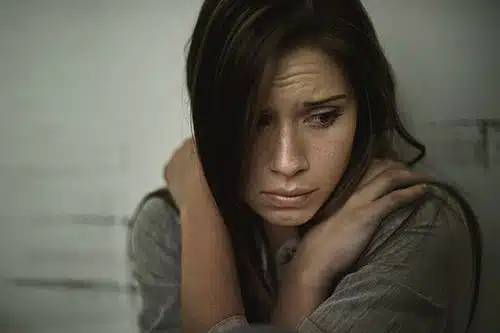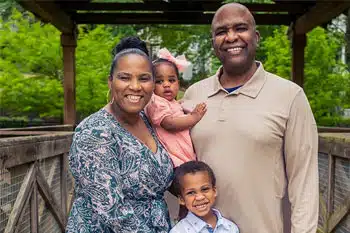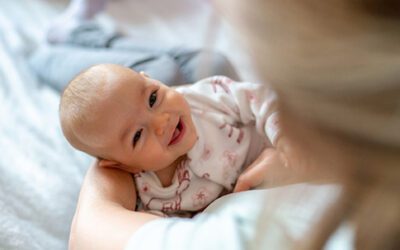
A Closed Adoption Case Study
Whenever October rolls around–it’s Breast Cancer Awareness Month–I’m reminded of the breast biopsy I had in 2008. This forces me into remembering the years that followed the biopsy when I battled my closed adoption to gain access to crucial family medical history. And, as I always do, I reflect upon my birth mother, an unwed mother whose only choice in 1959 was closed adoption.
My closed adoption occurred during the Baby Scoop Era–the time period post-WWII through the early 1970s when birth moms were not involved in the adoption process. Adoption agencies made the decision to match a baby with the adoptive parents. Birth parents were not consulted. Likewise, the agency did not share the identities or whereabouts of the adoptive family. Once the birth mother signed relinquishment papers, she was prohibited from all future contact with her child.
When my birth mom met with the adoption center for her intake interview, she admitted that my birth father had not wanted to marry her, so she was forced into adoption. Because society judged unwed mothers harshly during this time, the social worker encouraged my mother to take an alias. She welcomed this idea. A false identity would protect her against anyone (especially her large family) from learning about her predicament. My birth mother’s alias appears on my original birth record (OBR), a detail that made it difficult for me to locate her when I needed to do so.
During her pregnancy, my birth mom traveled out of state to live at a women’s home. During her stay there, she received only basic prenatal care, and she did not create an adoption hospital plan. The agency’s social worker gave my mother this advice: once your child is born, it’s best if you do not see or hold your baby. When she returned to work, the social worker went on to say she should pretend as if none of this had ever happened.
Like my mother, birth moms in the Baby Scoop Era did not realize that they would feel loss or grief after surrendering their child. Most were not given the necessary tools or resources to cope with these emotions. Few sought counseling or shared their experience with friends or family. They suffered in silence. Ann Fessler chronicles the dilemma of the closed adoption birth mother in her 2006 book The Girls Who Went Away, The Hidden History of Women Who Surrendered Children for Adoption in the Decades Before Roe v. Wade.
During this period in adoption history, it was common for adoption agencies to collect only rudimentary information from birth mothers, such as height, weight, hair and eye color, education, and religious preference. When I requisitioned the non-identifying information from my adoption file, I learned my mother was in good health at the time of her pregnancy, and my birth father wore glasses. That was it.
The agency also did not require that the birth mother reveal the identity of the birth father. This oversight of parental rights was entirely legal, and it made the adoption process run smoothly and quickly. On my OBR–in the space where my birth dad’s name should appear–are the words: legally omitted. This was common practice with closed adoption records.
In order to collect my birth family’s medical history, I first had to locate my birth mother. Fortunately for me, Illinois adoption statutes had undergone an overhaul, and a state-appointed confidential intermediary petitioned the courts for documents that had been sealed for decades. I got lucky again. Not only was my birth mother’s alias in the adoption file, so was her true identity. Eventually, both of my birth parents complied with my request for information.
Now that I’m in reunion with my birth mother and half-siblings, I believe that if the “open” adoption process had been available to my birth mom, our lives would have been filled with less trauma and more joy. For example, I might have been spared the angst of searching for a woman who feared being found, and she might have shared my background with me long before I became a middle-aged woman. Because a breast biopsy compelled me to launch the successful search for my birth mother, October’s Breast Cancer Awareness Month will always hold profound meaning for me.
How Closed Adoption Impacted Birth Mothers
A birth mother was…
- Usually an unwed teen forced into adoption
- Shamed by society and feared discovery
- Not part of the adoption plan
- Offered poor pre- and post-adoption counseling and peer support
- Encouraged to use an alias
- Advised not to see or hold her baby
- Urged to return to her previous life as if “it” had never happened
- Forbidden from future contact with her child or the adoptive parents
- Unaware that she might feel loss or grief for a very long time
How closed adoption impacted adoptees
An adoptee was…
- Completely cut-off from who & where he/she came from prior to adoption
- Placed in a family under the sole discretion of the adoption center or attorney
- Given little or no knowledge of family medical history or genealogy (This meant that preventable health issues went undetected and untreated, or an adoptee was subjected to unnecessary tests and procedures because of an absent health history.)
- Expected to take on the culture, ethnicity, and religion of the adoptive family
- Not involved in an exchange of photos or letters with the birth family
- Never counseled about issues with identity, belonging, rejection and loss
- Often not told of their adoption (or discovered the truth later in life)
Even though closed adoption is no longer prevalent, it’s important to honor those affected by it and the challenges they continue to face due to rigid state adoption statutes. Because of what society learned from the closed adoption experience, better options like open adoption are available to today’s birth mothers. Every birth mom should play a role in her child’s adoption plan, and every adoptee should have access to family health history and genealogy.
Author Julie Ryan McGue was born in Chicago, Illinois. She is a domestic adoptee and an identical twin. She received her BA from Indiana University in Psychology. She earned a MM in Marketing from the Kellogg Graduate School of Business, Northwestern University. She has served multiple terms on the Board at the Midwest Adoption Center in Des Plaines, Illinois and is a member of the American Adoption Congress.
Julie’s debut memoir Twice a Daughter: A Search for Identity, Family, and Belonging was released in May 2021. It’s the story of her five-year search for birth relatives. Julie writes extensively about finding out who you really are, where you belong, and how to make sense of it. Her weekly essays focus on identity, family, and life’s quirky moments. You can follow her at JulieMcGueAuthor.com.





Julie – This is a fascinating piece, with insights I never thought about. Your book sounds intriguing. Looking forward to reading it!
I am a birth mom of the ‘60’s and went to an unwed mothers home in a distant city. By the grace of God, I have been reunited with my daughter and it’s beyond a blessing. Her adoptive mother is 92 and in a skilled health care facility and doesn’t know she has found me. It is all beyond sad on so many levels but I am so grateful that we have a beautiful relationship today. I let go,of all the hurt and am thankful for what I have today.
Thank you for sharing your adoption story, Kathleen!